SIGN UP FOR NEWSLETTER
Be the First to Know. Sign up to newsletter today

Jayashree
1863 views
add comment
Here I am standing outside my local department store. I had gone after 9PM just to buy some veggies. And yet, here I was with a bill of Rs. 1754 in my hand wondering how I had managed the feat of turning a Rs. 100 worth shopping into such a number. Inadvertently, my husband blamed it on ‘being a woman’ – Ah! The classic gender stereotype can be used without forethought as long as it is convenient. But I couldn’t rest in peace. Are we, as women, programmed to spending more money? Can we really choose shopping over other activities? What makes shopping such a favorite with women and such a pain for men? Why women shop (so much)- that’s the big question.
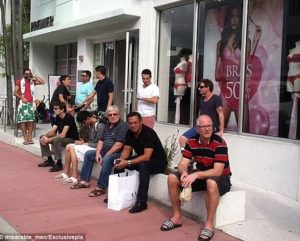
I typically dissuade stereotypes. If you are a woman you’ll do x and if you are a man you’ll do y. Argh! Is there no one from the male species on the planet who likes shopping? I don’t think so. Men do ‘shop’ shop when it comes to shopping for themselves. A good watch shop with top notch brands will have men spending as much time shopping as women do. When it comes to gadgets and goodies, men love to take a detour and check out what else is available. And these days, when it comes to smart phones and tabs, you’ll definitely find men peering over each feature trying to figure which offers a better deal.
So, here’s the truth – Men and Women both love shopping – only, each love their own kind of shopping. As much a stereotype as it may sound, there is statistical (and photographic) evidence to prove that they don’t shop like women do, especially when it comes to clothes.
To women, shopping is an experience. To men, shopping (i.e. their partner shopping) is an expedition – a mission that needs to be completed so that they can move on to doing more interesting things. There are examples all around me. Women in clothing stores busy queuing up in front of the trial room as their male companions wait it out.
In addition to this, the poor species is also subjected to questioning on various aspects of the dress – “Does Dress A look better than Dress B?” “Does dress A look good in general but does dress B look better on me?”. “Why, what’s wrong with dress B?” – warning – this is a test question to see if the man has been paying attention! “Does blue work better than yellow?” The dreaded, “Do I look fat in this dress?” or “Which one do you prefer?” – this is an answer that will be recorded with a date and time stamp in the woman’s memory forever and will be brought out for future references, if needed. And of course, just as the winning dress emerges, there comes a realization that she doesn’t have a shoe to go with it.
The following pictures from around the world appear on a parody Instagram account called Shopping with their Ladies: The Miserable Men of Instagram.
These are the men of the world who are asking themselves ‘Why women shop’
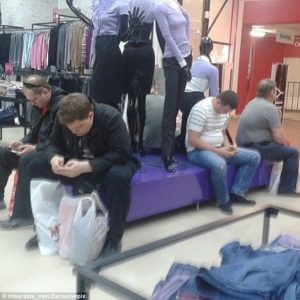
The above pics show only half the story. Men sometimes have the additional job of babysitting highly-energetic pint-sized runners while their partners are trying on clothes. That ensures they don’t get bored but it doesn’t make them particularly happy either.
So why do women take so long to shop? Why can’t they pick up the first dress that seems to fit and get done with it? Here are some insights:
As the human race evolved, men typically took on the role of hunters and women took on the role of gatherers. The men would go out in the forest hunting for meat. They would know what they are hunting for and set traps accordingly. Anthropological evidence showed that meat constituted only 10-20% of the diet and hence men spent only 12-20 hours per week at the job.
80-90% of the diet came from berries, nuts, wild plants and fruits gathered by the women. This made women take more time to ensure that they picked only the best from the available variety to be brought back to the family.
TIME TO SHOP
So how does the analogy fit into the why women shop theory? It is believed that our evolutionary instincts are still intact. Men appear to be more mono-focussed while shopping. They don’t browse (or forage) through the aisles. Instead, they know what they want to buy go straight for the kill. After the hunt, men would want to get back as soon as possible. This was because it wasn’t the best idea to leave a dead animal for too long which would either attract insects or make the meat go bad due to prolonged sun exposure.
Women, on the other hand, go in a ‘gathering’ mode. They go browsing from aisle to aisle, shop to shop, checking each item for its freshness and availability before zeroing in on what to bring back home.
The environment and objects have changed but the basic instincts haven’t. This is a universal generalization, there are many men and women to whom it may not apply. To those it does, it makes a smart story of justification that can be shared over a few drinks.
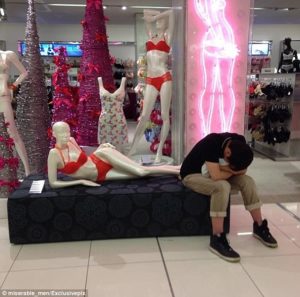
Bridget Brennan, the CEO of Female Factor and the author of Why She Buys: The New Strategy for Reaching the World’s Most Powerful Consumers has a different theory. Women today play the role of a shopping agent for the entire family. She is the all powerful consumer who every retail shop needs to satisfy if they want her on their side.
Women shop for themselves but they also shop for husbands, partners, kids, colleagues, family members, friends, parents, in-laws and elderly relatives. If there is a birthday, anniversary or party coming up, she is the one to put on the thinking hat to buy the most suitable present. From Christmas to Diwali, she ensures that house has what it needs to make it a celebration. As she puts it, women shop for the ‘invisible others’. Women carry the weight of being the “shoppers of the world” – one that they don’t intend to take lightly anytime soon.
Men Buy, Women Shop
In a study titled, “Men Buy, Women Shop,” researchers at Wharton’s Jay H. Baker Retail Initiative and the Verde Group, a Toronto consulting firm, found that women are emotional shoppers while men are functional ones. Women respond more strongly to a sales representative than men. The research suggests that after having relied on women for their shopping for generations. men’s interest in shopping has diminished.
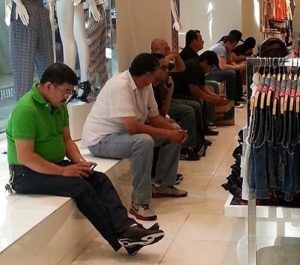
Almost 29% women said that the top problem they faced while shopping was the “lack of help when needed.” This is the biggest reason why a store could lose up to 6% of its women shoppers.
On the contrary, 29% men said that their biggest shopping problem was “finding a parking place close to the entrance.”
According to the study, women want the sales personnel in the store to be informative about trends and help determine which dresses best suits her. Women need attention and want to be given importance by the sales rep.
Men on the other hand only require the sales rep’s help in finding the right size and the quickest checkout line.
As you can clearly see, shopping is a more emotional thing for a woman than a man. A woman will walk out of the store if she finds the sales person not engaging or less knowledgeable. A man will walk out of the store if the sales person is lazy and doesn’t want to look for more stock.
In a price-sensitive market with ample competition, the sales rep you put out on the floor can really make or break your sale.
Shops and stores are catering to the demand-supply effect. The more they want women to shop and spend time at their store, the larger collection they have. So much so that stores these days stock everything you need under one roof.
The pricing is done cleverly too. Some items offer a wonderful discount while the ones that you really want to buy are never on sale – and yet, you end up buying them. With perfect ambiance, relaxed environment, and gorgeous display, they let you imagine and trying a dress before actually buying it.
The early multi-dimensional store’s first effort to cater to women was to add a toilet within the premises. Until then, shopping was always a race to finish shopping before you want to ‘go’. This seemingly simple addition that we take for granted today gave a big push to the shopping industry as we know it. The positioning of various aisles to sweeten your senses, keep higher valued items at eye level and adding a helpful but non-intrusive sales person are all strategies that help women shop longer and harder.

So here is the evidence you have been looking for. Men say that they get terribly bored when their partner takes too long to decide or find what they want, constantly being asked their opinion on what to buy, busy shops and an interesting game on TV.
·Men, on an average, spend 26 mins shopping. Women, on an average, take two hours before fatigue sets in!
Around three-quarters women experience shopping stress in less than 2 hours of shopping. The most common reason is not finding what they are looking for. Many women don’t enter the shop with an ‘agenda’ like ‘I want to buy a black pullover’. It is generally getting into the shop and seeing what’s new and what’s on sale. Not knowing what they are looking for makes shopping for it even more difficult and time-consuming. It is quite a bit like a discovery expedition or treasure hunt and all the effort is worth it only if you really find something to buy.
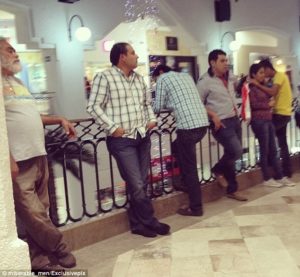
Seven in ten women also found shopping ‘frustrating’ when they saw their partners getting bored and had to hurry through the aisles.
Almost half of all spousal shopping trips ended in an argument because both men and women ended up frustrated from the experience for different reasons.
Let’s get some solutions going
Now that we know the ‘why’, let’s get down to the ‘how’. How are we going to rectify the most classic gender instincts of all times. Do share your thoughts here with comments. Here’s what we think.
Shopping happens in the store but it is also in your pocket. Today it is a smartphone away. Both partners can look for deals in their own free time, shortlist and buy. It saves time and effort and allows a better use of your free time instead of getting frustrated with each other. You can even pre-select your clothes from your favourite brand and then quickly try it on offline in the store and buy it.
If shopping online is not your style, you are still stuck with the age old problem. In that case, make sure your man has the latest movie ready for viewing on his phone. Let the long waiting hour outside the trial room be a little more entertaining. A Kindle with a good book too is a great winner.

A man-creche is a place where men can hang out and do their thing. This is around the cafe or near a gadget or a book store. You’ll have to enter together, shop separately, and leave together, both happy.
If you come shopping with me, I’ll let you watch the match without a single interruption
If you come shopping with me, I promise to finish in exactly one hour
Come shopping with me, we can watch that zombie movie that you really wanted to watch
(pardon the generalization, but you know what can work for your man)
A little give and a little take can make shopping a sweet deal.
This really is the best solution out there where everybody gets what they want. (Yes, there is something called a perfect solution)!
A guided shopping tour allows you to hire a guide who can take you to the exact shop to get you the right deal. They can guide you on what’s available, what’s famous and what’s on discount – someone who can tell you everything you need to know to have a great shopping experience while crunching time.
And not just that, a shopping guide can also take you to some interesting food joints in between and ensure everyone stays happy, full and hydrated while taking back home a truckload of shopping bags and a heart full of memories. If you are touring a new city, a shopping guide is a must!

Want to hire a shopping guide? Write to us!
And on that note, we take your leave for the next shopping ex
pedestrian through the lanes of Chandni Chowk. Until next time, happy shopping!
Read our other blogs :-
11 Shopping resolutions for 2018 that’ll save you money
Be the First to Know. Sign up to newsletter today
One thought on "The Psychology Behind Why Women Shop And Men Just Buy"